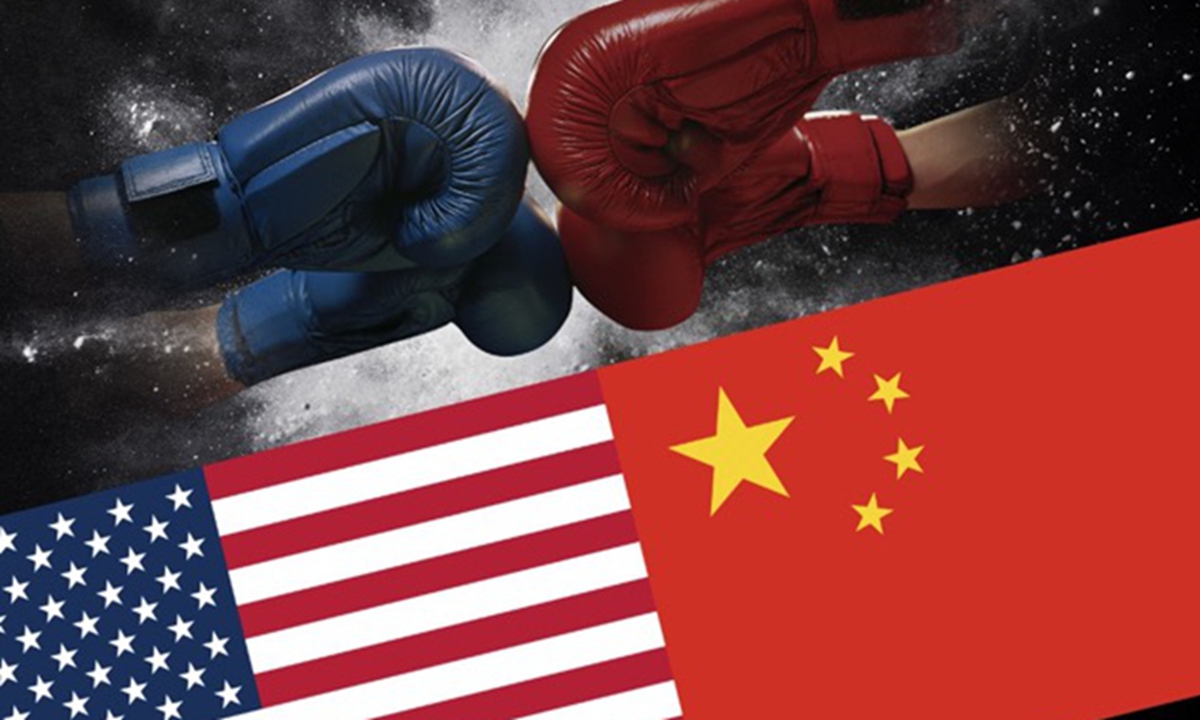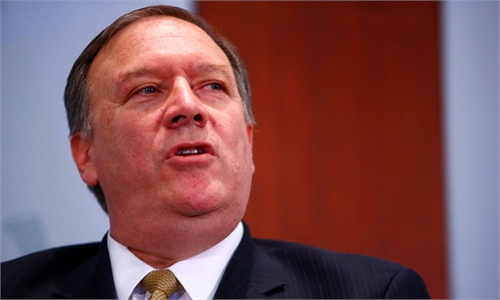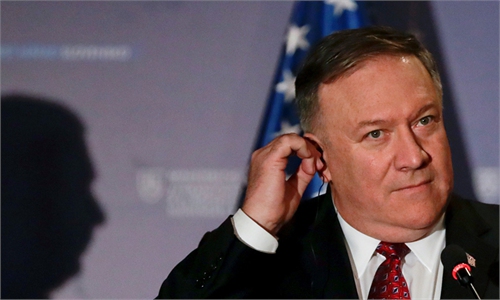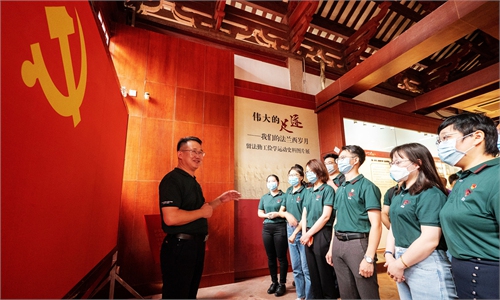
China, US Photo: GT
In a strongly worded speech against China delivered at the Richard Nixon Presidential Library in California Thursday, US Secretary of State Mike Pompeo called for engagement and empowerment of the Chinese people. He said the Chinese are "dynamic and freedom-loving people who are completely distinct from the Chinese Communist Party." He put the Communist Party of China (CPC) at odds with the Chinese people during the entire speech.
For quite a period of time, many US politicians, represented by Pompeo, have attempted to separate the Party from the Chinese people. They emphasized the CPC is a threat, while the Chinese people are not. They have constantly demonized the CPC in order to drive a wedge between the CPC and the Chinese people, which only reflects their desperation. It shows they have no other tricks left to play. Attempting to alienate the people from the Party by throwing mud at the latter has been regarded as the last game that they can play to create trouble for China.
US politicians think they can achieve their goal through attacking the CPC. They overestimate themselves. They try to alienate the people from the CPC like ants trying to shake a big tree. They underestimate the solidarity and cohesion of Chinese society.
The CPC now has over 93 million members from the people. It is the backbone of China's huge society and the main force that is bolstering operation of the society. The destiny of the Party and the country has always been closely linked.
Why has China gained remarkable achievements with development over the past few decades? It's because the CPC has grasped the development code of the country. Although there are still some problems within the country, the CPC is able to correct errors and good at learning. It can discover internal problems, find solutions, and adjust policies accordingly and timely.
The success of the Party lies in that it has mapped out the right policies for reform and development, which have brought substantial benefits to the people. This is the key.
Grassroots Party members and officials are the backbone of the country's development. They unite the people to concentrate efforts on development. The stereotype of CPC members in the eyes of many Westerners used to be bureaucratic and rigid officials dressed in Zhongshan suit. It's too outdated and biased. Chinese grassroots CPC members closely stand with the people. They often rush to the frontline in face of crises.
Besides, the CPC has strong organization and mobilization ability. Because of the adoption of suitable principles, routes, and policies that can benefit them, the Party has gained popularity among the people.
From the perspective of political science, the concept of CPC is different from those of other parties. China's development and practice have redefined what a political party is and what politics is. These are different from the notions in Western textbooks.
In the past, the US wanted to change China, inducing the country to the path of Western-styled democracy. But it failed. The Chinese development model has gained great success. This has made the US and the West feel threatened.
It must be pointed out that the US decline is caused by internal problems. It should reflect upon itself. I believe there are rational Americans and China hands who want to cooperate with China. Unfortunately, some US politicians, particularly Pompeo and his likes, are demonizing the CPC and portraying China as an enemy. It's a propaganda tactic. They want to divert the US public attention from domestic woes to the outside and unite the people against an external "threat." Their attempt is doomed to fail.
It's only wishful thinking that politicians like Pompeo want to repeat a cold war with China resembling the one that dragged down the Soviet Union. These politicians lack strategic vision and morality. More importantly, China is not the old Soviet Union. It will never follow a path that the Soviet Union chose.
The author is director of the Institute of Information Studies at the Chinese Academy of Social Sciences. opinion@globaltimes.com.cn



